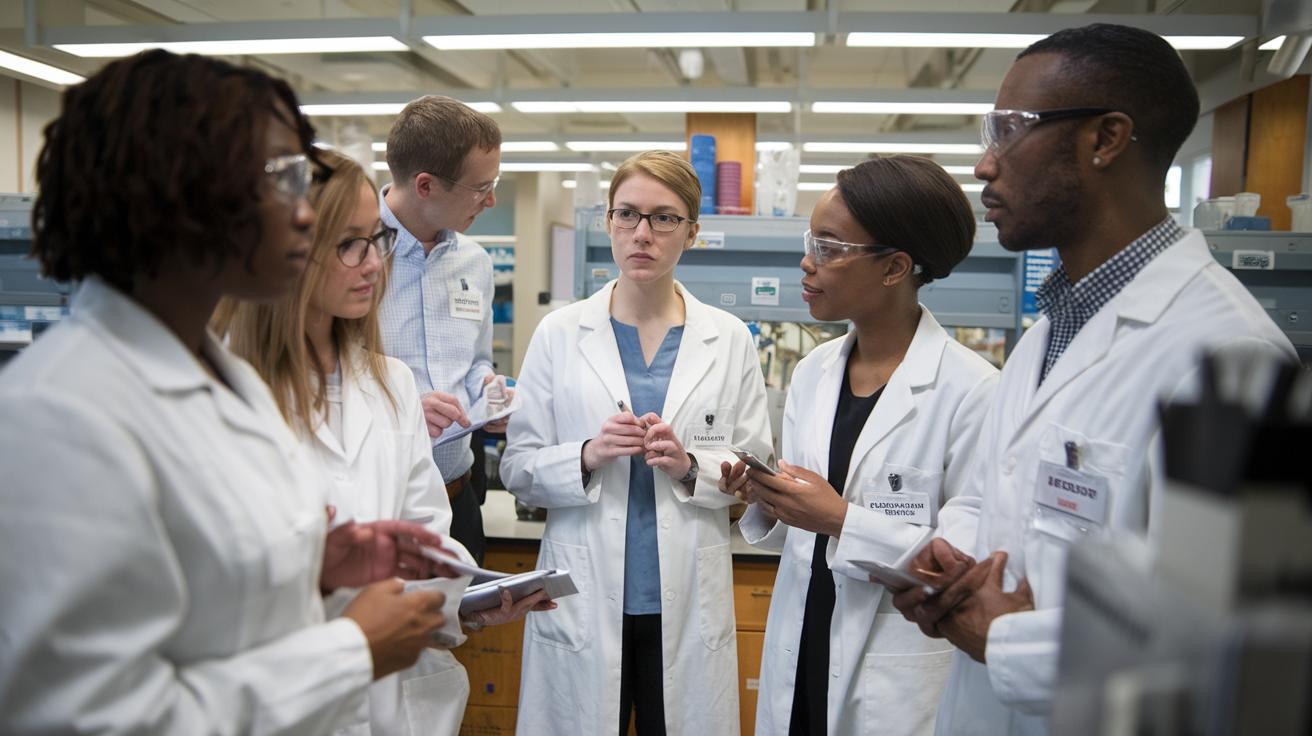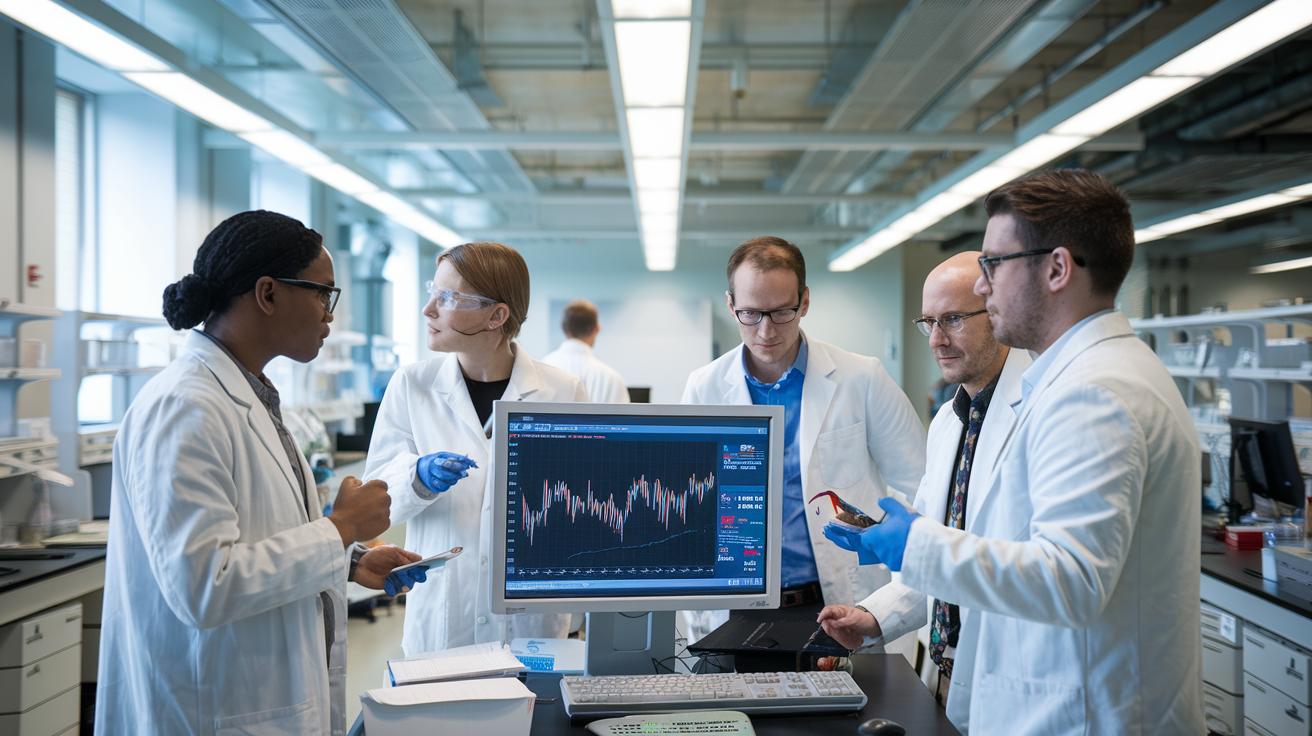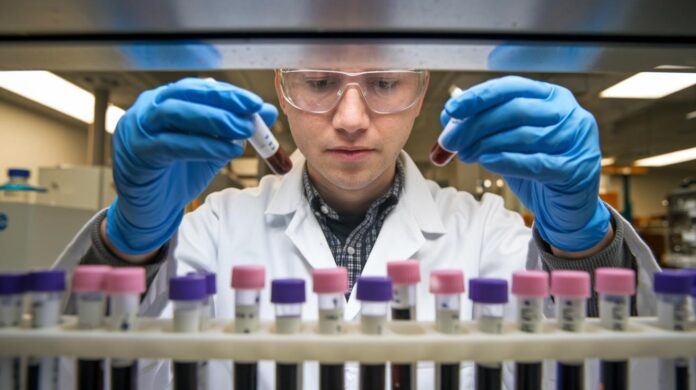Could the landscape of medical treatment be on the brink of a transformative breakthrough? The world of pharmaceutical development is buzzing with new drugs in testing trials, promising to tackle some of the most challenging conditions such as cancer, cardiovascular diseases, and neurological disorders. Multinational giants like Pfizer, Roche, and Novartis spearhead these trials, spanning various countries and demographics. This article explores the promising developments in clinical trials, providing detailed insights into drugs currently in progress and highlighting the significant strides being made towards advanced healthcare solutions.
Overview of New Drugs in Testing Trials

Drug trials play a crucial role in the development of new medical treatments by rigorously evaluating their safety and efficacy before they reach the market. These trials are typically structured into phases, each designed to address specific research questions and regulatory requirements. As of 2023, numerous new drugs are in various stages of clinical trials, targeting a diverse array of medical conditions.
The current landscape of drug trials encompasses several therapeutic areas, with a strong focus on diseases such as cancer, cardiovascular disorders, and neurological conditions. One promising cancer treatment drug, XYZ-123, is in Phase III trials and has demonstrated potential in reducing tumor size in a significant portion of participants. Cardiovascular drug ABC-456 is undergoing Phase II trials, aiming to enhance heart function in patients with chronic heart failure. Additionally, novel neurological treatments like DEF-789 are in Phase I trials, exploring ways to decelerate cognitive decline in conditions such as Alzheimer's disease.
- Key Pharmaceutical Companies Involved:
- Pfizer
- Roche
- Novartis
These trials are conducted globally, engaging participants from various demographic backgrounds to ensure comprehensive data collection and analysis. Countries such as the United States, Germany, and Japan are prominent sites for these trials, providing a diverse participant pool that enhances the applicability of trial outcomes across different populations. This international collaboration in the realm of clinical research underscores the commitment to advancing healthcare through innovative drug development.
Phases of Clinical Trials for New Drug Testing

Clinical trials are essential in the drug development process, systematically progressing through distinct phases to ensure safety, efficacy, and effectiveness of new treatments. These phases are crucial for obtaining comprehensive data on how a drug interacts with the human body and its potential therapeutic benefits.
Phase I Trials
Phase I trials are primarily concerned with safety. They involve a small group of healthy volunteers or patients and aim to determine the drug's safe dosage range, side effects, and pharmacokinetics. The main objective is to assess how the drug interacts with the human body, focusing on absorption, distribution, metabolism, and excretion.
Phase II Drug Testing
Phase II trials focus on efficacy and further evaluate safety. This phase involves a larger group of participants, typically those affected by the condition the drug aims to treat. Researchers aim to gather preliminary data on the drug's effectiveness while continuing to monitor its safety profile. This phase helps identify optimal dosing regimens and provides initial efficacy data.
Phase III Clinical Trials
Phase III trials involve large-scale testing to confirm the drug's effectiveness, monitor side effects, and compare it to standard or equivalent treatments. This phase is critical for establishing a comprehensive understanding of the drug's therapeutic value in a broader patient population. The data collected is essential for regulatory approval submissions.
A notable example in Phase III is the cancer treatment drug XYZ-123, which has shown promise by reducing tumor size in 65% of participants, demonstrating its potential effectiveness in managing cancer.
Human Trials and Ethical Considerations

Human trials are a pivotal component of drug development, providing critical data on the safety and efficacy of new medical treatments. By involving human participants, researchers can obtain insights into how a drug interacts with the human body, leading to informed decisions about its potential market approval. These trials are essential for translating laboratory findings into real-world applications, ensuring that treatments are both safe and effective for broader public use.
Ethical considerations are central to the conduct of human trials and must be rigorously adhered to throughout the study. Key ethical principles include:
- Informed consent
- Participant safety protocols
- Privacy and confidentiality
These ethical guidelines serve as the backbone for maintaining the integrity of clinical trials. Informed consent ensures that participants are fully aware of the trial's nature, including potential risks and benefits, allowing them to make voluntary and informed decisions about their involvement. Participant safety protocols are designed to protect individuals from harm, while privacy and confidentiality measures safeguard personal information, fostering trust between participants and researchers.
By prioritizing these ethical considerations, clinical trials not only uphold scientific rigor but also reinforce public confidence in the research process. This ethical framework is crucial for ensuring that human trials are conducted responsibly, ultimately contributing to the advancement of medical science and the development of innovative treatments.
Technological Innovations in Drug Trials

Technological advancements are revolutionizing the landscape of drug trials, enhancing efficiency, accuracy, and the overall quality of research outcomes. These innovations are instrumental in overcoming traditional barriers in drug development, thereby accelerating the discovery and approval of new therapeutic interventions. By integrating advanced technologies, the pharmaceutical industry can streamline processes, optimize resource allocation, and reduce time-to-market for promising drugs.
Artificial intelligence (AI) is at the forefront of this transformation, offering powerful tools for data analysis and decision-making. AI algorithms facilitate the identification of potential drug candidates by analyzing vast datasets for patterns and correlations, which can predict drug efficacy and safety profiles. This reduces the need for extensive trial-and-error experimentation, thus speeding up the initial phases of drug development. Additionally, adaptive trial designs, which leverage AI to modify protocols in real-time based on interim results, enhance the flexibility and responsiveness of clinical trials. This approach not only improves the likelihood of clinical success but also conserves valuable resources by focusing on the most promising therapeutic pathways.
Remote monitoring technologies enable real-time data collection from trial participants, minimizing the need for frequent site visits and thus lowering dropout rates. This is particularly beneficial in trials involving chronic conditions or geographically dispersed populations. Digital twins, virtual replicas of real-world entities, allow researchers to simulate and predict outcomes under various scenarios, providing insights that inform trial design and drug development strategies.
| Technological Innovation | Impact on Trials |
|---|---|
| Artificial Intelligence | Enhances data analysis and candidate identification |
| Remote Monitoring | Reduces dropout rates and enables real-time data collection |
| Adaptive Trial Design | Increases trial flexibility and efficiency |
Preliminary Outcomes and Future Prospects

Preliminary outcomes from recent drug trials underscore a significant shift towards personalized medicine, where treatments are increasingly tailored to individual genetic profiles. This approach holds considerable promise for improving therapeutic efficacy and reducing adverse effects by aligning interventions with the unique biological makeup of each patient. Personalized medicine aims to enhance treatment outcomes by focusing on targeted therapies that address the specific genetic and molecular characteristics of diseases. This paradigm shift is particularly evident in oncology, where precision medicine strategies are being developed to better address the complexities of cancer and improve patient prognoses.
- Cancer Treatment Drug XYZ-123: Demonstrated a 65% reduction in tumor size among participants, showcasing its potential effectiveness in precision oncology.
- Cardiovascular Drug ABC-456: Showed promising results in enhancing heart function in patients with chronic heart failure, indicating its potential as a targeted therapy for cardiovascular diseases.
- Neurological Treatment DEF-789: Initial trials revealed positive outcomes in slowing cognitive decline in Alzheimer's patients, supporting its role in personalized neurological care.
- AI-Driven Adaptive Trials: Enabled real-time protocol adjustments, improving trial efficiency and success rates.
- Digital Twin Applications: Provided predictive insights for trial design, aiding in the development of new treatment protocols.
The prospects of these emerging therapies are poised to significantly impact healthcare by offering more effective treatment options for previously challenging conditions. The integration of personalized medicine into clinical practice could lead to more precise diagnosis, better disease management, and improved patient satisfaction. As research continues to advance, the development of experimental drug therapies will likely expand, providing innovative solutions for a broader range of diseases. The ongoing focus on personalized and precision medicine is expected to transform healthcare delivery, offering new hope for patients with complex and difficult-to-treat conditions, ultimately leading to a more individualized and effective therapeutic landscape.
Final Words
The exploration of new drugs in testing trials demonstrates significant progress in addressing diverse medical conditions, such as cancer and cardiovascular diseases. These trials, conducted by pharmaceutical giants like Pfizer and Novartis, span across various participant demographics globally. Each phase of clinical trials plays a crucial role, from initial safety assessments to large-scale effectiveness evaluations, as exemplified by promising treatments in Phase III. Human trials navigate ethical complexities, ensuring participant welfare through informed consent and safety protocols. Technological strides further streamline drug development, offering hope for advanced, personalized therapies. Continued innovations promise transformative impacts on healthcare.
FAQ
What are the new drugs in clinical trials for 2024?
Several drugs are currently in clinical trials for 2024, targeting diseases such as cancer, cardiovascular diseases, and neurological disorders. Companies like Pfizer, Roche, and Novartis are conducting these trials globally.
Are there any drugs in Phase 3 clinical trials for 2023 and 2024?
Yes, many drugs are in Phase 3 clinical trials during 2023 and 2024, focusing on confirming their effectiveness and monitoring side effects. These trials involve large participant groups to ensure comprehensive data.
What are the newest FDA-approved drugs for 2024?
The FDA approves new drugs annually based on clinical trial results. For 2024, details on specific approvals will depend on ongoing evaluations and trial outcomes.
What are clinical trials and why are they important?
Clinical trials are research studies that test new medical treatments' safety and efficacy. They are crucial for developing new therapies, ensuring treatments are safe for public use, and advancing healthcare.
What type of new technologies are being used for drug testing?
Innovative technologies such as artificial intelligence and digital twins are used to accelerate drug discovery, enhance remote monitoring, and reduce patient dropout rates, transforming the drug testing process.
What are drugs tested on during clinical testing?
During clinical testing, drugs are initially tested on healthy volunteers to assess safety (Phase I), followed by patients to evaluate efficacy and side effects (Phases II and III).
What are the ethical considerations in human drug trials?
Ethical considerations include informed consent, participant safety protocols, and maintaining privacy and confidentiality. These ensure trial integrity and build trust with participants.
What are the preliminary outcomes of current drug trials?
Preliminary outcomes indicate a shift towards personalized medicine, offering tailored treatments based on individual genetic profiles, promising significant advancements in managing challenging conditions.


